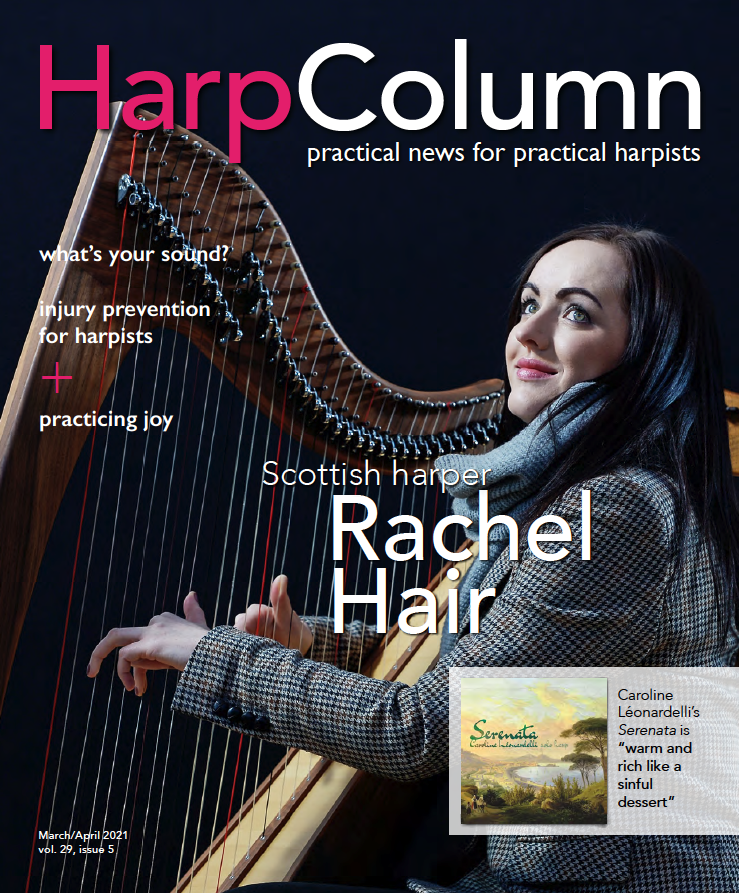
I really do love to practice. Whenever I have said that to my students, they have looked at me as if I had lost my mind or that, perhaps, they have chosen the wrong teacher.
One of the most important skills that I have developed over the years is the ability to practice efficiently and effectively by solving problems. However, my musical journey did not start out that way.
For as long as I can remember, I have heard many people say that, although they love making music, they hate practicing. As I taught scores of students over the years, I learned that I needed to examine the reasons I enjoy practicing in order to share that information with them.
My parents said I began singing shortly after I started talking, and they thought that, perhaps, I might be interested in music. So when I was five years old, my parents decided to rent a piano so I could take lessons with the piano teacher who lived down the street.
The day the piano arrived at our home, I was extremely excited and could hardly wait to begin my lessons. However, after a while my parents noticed that I did not seem so interested in learning my assigned music, and my mother said, “If you want to go outside and play, you need to practice your piano lesson music first.” Thus, practicing became the “punishment” that kept me away from the “reward” of having fun with my friends.
As the end of the piano rental period was approached, my father decided to take another approach with me. One day, when I sat down for the obligatory practice session, he asked, “What do you want to do?” To which I responded, “I want to play this piece.” His response was, “What’s stopping you from playing it?” I immediately pointed to the notes that were problematic for me. Then he advised me to work on what I could not play well.
My father never asked me to be perfect before calling him in to listen. To play ‘without stopping’ was his only request.
His next instruction changed my life: “When you can play the piece without stopping, come and get me, and if you stop, I will throw a tomato at you.” Armed with the two words, “without stopping,” I began to focus on learning the notes and measures that were more difficult first and then connect them to those that were easier. Suddenly I was challenged to solve the hardest parts instead of continually going back to the beginning of the piece and getting stuck at the same places. As a result, I began to practice the measures that I could not play well first so that I could learn to perform the entire piece. When I thought that I was ready, I called my father into the living room.
He came holding a tomato in one hand, and sat in a chair. I looked carefully at my music before beginning, especially thinking about the problematic measures, then I began my performance. When I got to the end of the piece without stopping (or having a tomato thrown at me), my father said, “That was good! Now, what do you want to do?” My enthusiastic response was, “I want to learn another piece!” I learned two important lessons that day: how to solve problems—practice, and how to perform—play without stopping.
My father never asked me to be perfect before calling him in to listen. To play “without stopping” was his only request. The omission of the word perfect was an enormous gift because it gave me permission to learn how to keep going, regardless of what happened, in other words, to perform.
One of the first steps I take when given a new piece of music is to sightread it, one section at a time. Then I make a numbered list, on paper, of those measures that will require the most work. After listing them, I put an asterisk next to the hardest ones, and those are the ones I begin working on first. The goal is to not avoid the difficulties, but to identify and tackle them first.
I always look forward to solving problems and enjoy that process. Setting realistic goals for each practice period is an extremely important step toward empowerment, and my goals have always been predicated upon what I think I have time to successfully solve.
For example, if I have an hour or less, I will choose to work on one or more measures that I realistically think I can make better during the allotted time period. However, if I know that my practice sessions can begin in the morning when I am freshest mentally and go well into the afternoon, those are the times when I tackle the asterisked sections that will require more time. Whenever I take breaks, I decide if I am ahead of or behind my goal. That informs how I will proceed upon restarting.
An important tenet of effective practicing is to select a realistic starting tempo in order to have successful repetitions of the chosen section. My rule is that if I can play it correctly three times in a row, then I can begin to increase the metronome tempo. It is important for me to leave each practice period with a sense of accomplishment so that I look forward to the next one.
Whenever I am asked which I enjoy more, performing or teaching, my answer is always “both!” For me, they are inseparable. I must practice what I teach and teach what I practice.
Thanks for your help, Daddy! •







